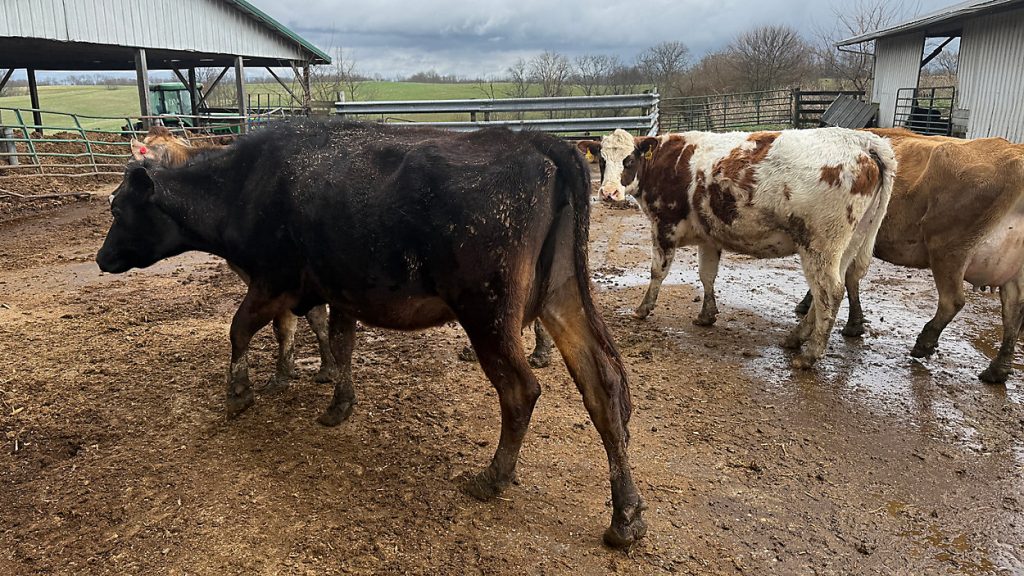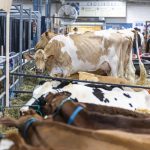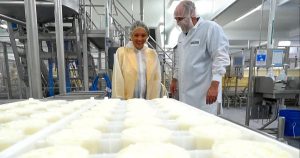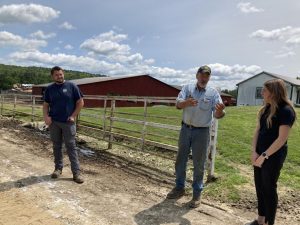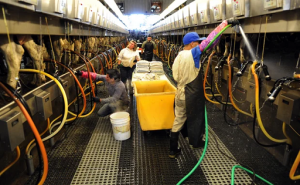
It’s not cheap to feed all the hungry cows at Rowlett Dairy Farm in Henry County, even after downsizing and cutting its number of cows in half.
What You Need To Know
-
- Tariffs can disrupt export markets, increase production costs and reduce profitability for farmers
-
- President Donald Trump has said tariffs will raise hundreds of billions of dollars for the U.S. and reduce the country’s trade deficit
-
- Senator Mitch McConnell, R-Ky., has expressed opposition
- Dairy farmer Terry Rowlett said they present challenges but added he has successfully overcome past economic challenges
Terry Rowlett’s father bought the farm back in 1974. In 2019, Rowlett, who now owns the farm with his sister, Sharon, had to make a decision.
“Dairy is, for lack of a better word, economically hard to make ends meet,” Rowlett said.“Dairy is, for lack of a better word, economically hard to make ends meet,” Rowlett said. “We knew we were either going to have to get rid of the dairy farm or do something to add value to our milk.”
They adjusted their business model and opened Rowlett’s Milkhouse Creamery during Labor Day weekend in 2019. Sharon makes ice cream, and Terry makes butter and cheese.
Dairy Farmers of America ships out the rest of their milk to wherever it’ll sell, which, as of late, has been Winchester, Kentucky or Tennessee. The creamery has helped their bottom line, but they still face challenges.
“The infrastructure of agriculture has eroded, and that’s what has hurt being able to be local,” Rowlett said. “The price that we’re receiving per 100 weight for our milk is about the same that we got 20, 25 years ago. But all of our input costs have more than tripled, quadrupled since then.”
Now, there’s a new potential challenge in tariffs, which can disrupt export markets, increase production costs and reduce profitability for farmers. Retaliatory tariffs from major trading partners, like Canada’s high tariffs on U.S. dairy, could shrink export markets.
President Donald Trump has said tariffs will raise hundreds of billions for the U.S. and will reduce the country’s trade deficit. Sen. Mitch McConnell, R-Ky., has expressed opposition.
“It’ll be determined by whether the prices start going up, which is what typically happens, and I think the administration is hoping that’s not the result, that it drives prices up,” McConnell said. “We’ve already got way too much inflation.”
Kentucky farmers and lawmakers have expressed concerns about how tariffs could affect the state’s agricultural industry. But Rowlett said, just like they’ve done in the past, he and his sister will persevere through whatever tough times may be ahead.
We would love it to all be a bed of roses all the time, but we know within that bed of roses, there are a lot of thorns.”“It is just part of the process of farming,” Rowlett said. “You have to weather the storm. We would love it to all be a bed of roses all the time, but we know within that bed of roses, there are a lot of thorns.”
He added he does think cattle prices could eventually collapse, however.
“I don’t know how long consumers can continue to increase in pay for their meat and everything for their tables,” he said.
According to the International Dairy Foods Association’s Dairy Delivers economic map, the direct economic impact of the Kentucky dairy industry is $4.4 billion.
You can now read the most important #news on #eDairyNews #Whatsapp channels!!!
🇺🇸 eDairy News INGLÊS: https://whatsapp.com/channel/0029VaKsjzGDTkJyIN6hcP1K
